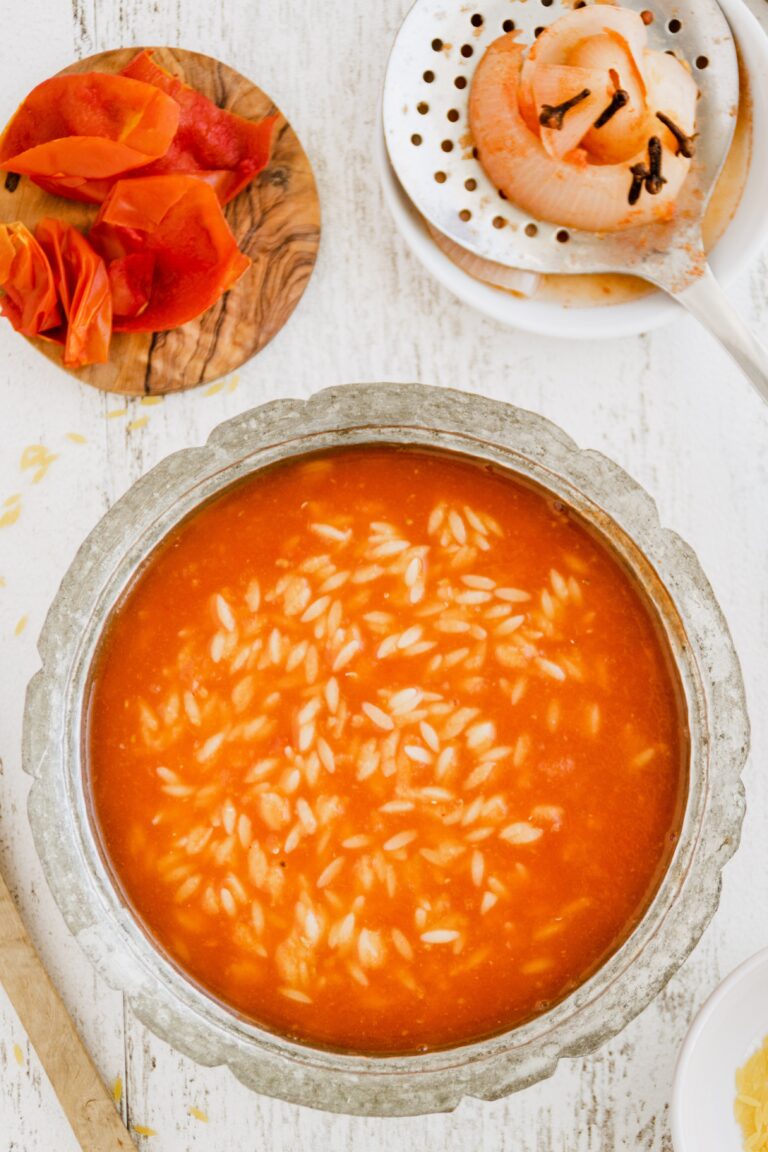
Hummus, that creamy and delightful spread, has its roots deeply planted in Middle Eastern cuisine. It’s not just food; it’s a cultural emblem that has found its way into kitchens around the globe. With its healthful blend of chickpeas, tahini, olive oil, and lemon juice, hummus is not just tasty but also packed with nutrients.
Whether you’ve whipped up a batch of plain hummus at home or you’re a fan of the more adventurous types like red pepper hummus, you might find yourself with more than you can consume in a short period. That’s where the magic of freezing comes into play. Can you freeze hummus? Absolutely, and here’s how to do it right.
What is Hummus
Hummus is a creamy, savory spread or dip originating from Middle Eastern cuisine, made primarily from cooked and mashed chickpeas blended with tahini (sesame seed paste), olive oil, lemon juice, and garlic. It’s known for its smooth texture and versatile flavor profile, often enjoyed with pita bread, vegetables, or as a component in various dishes. Hummus is not only delicious but also nutritious, offering a good source of protein, fiber, and healthy fats.

Can You Freeze Hummus
Yes, you can freeze hummus. Freezing hummus is a practical way to extend its shelf life without significantly compromising its taste or texture. While the texture may change slightly, stirring in a little olive oil after thawing can help restore its creamy consistency.
How To Freeze Hummus: Step by Step Guide
Step 1: Preparation
Before you think about how to freeze hummus, consider the type you’re freezing. Plain hummus and red pepper hummus are popular choices, but remember, the addition of fresh ingredients like roasted red peppers might affect the texture slightly upon thawing. However, this shouldn’t deter you from freezing it. Just add a little extra olive oil to the mix before freezing to help retain its creamy consistency.
Step 2: Portioning
When it comes to freezing hummus, portion control is key. Use a freezer bag or a safe container for food storage. If you’re using a container, leave some space at the top as hummus expands when it freezes. For individual servings, you might want to dollop the hummus onto a baking sheet, freeze until solid, and then transfer the portions into a freezer bag. This step ensures you can enjoy your hummus in amounts that suit your needs, without having to thaw the entire batch.
Step 3: Freezing
Now, let’s talk about the freezing process. Hummus freezes well, thanks to its olive oil and lemon juice content, which help maintain its texture and flavor. Once you’ve portioned your hummus, seal it in a freezer bag or container, removing as much air as possible. Label your container with the date posted to keep track of how long it’s been in the freezer. Properly stored, frozen hummus can last for up to four months without significant loss in quality.

Freezing Homemade vs Store Bought Hummus
Both homemade and store-bought hummus can be frozen successfully. Homemade hummus offers the advantage of adjusting ingredients to your preference before freezing, potentially enhancing its texture and flavor after thawing. Store-bought hummus, on the other hand, is convenient and typically contains preservatives that might help maintain its quality when frozen.
Regardless of the source, it’s important to store hummus in an airtight container or freezer bag to prevent freezer burn. The texture of hummus may change slightly after freezing and thawing, but it can often be revitalized with a stir and an additional drizzle of olive oil.
Can You Freeze Hummus Snack Cups
Yes, you can freeze hummus snack cups. Before freezing, ensure the cups are sealed properly to prevent freezer burn and maintain the hummus’s quality. It’s best to freeze them in their original packaging if it is freezer-safe. When you’re ready to enjoy one, thaw it in the refrigerator for about 24 hours. Keep in mind, the texture may change slightly after freezing and thawing, but stirring it well can help restore some of its creaminess.

How To Thaw Hummus
Thawing hummus is as crucial as freezing it. To thaw hummus, transfer it from the freezer to the refrigerator and let it thaw overnight. Avoid using the microwave to thaw hummus, as this can unevenly heat it and affect its texture. Thawed hummus might have some separation or be a bit grainier than when it was fresh, but a good stir and perhaps a drizzle of olive oil can revive its creamy consistency.
How long does hummus take to thaw
Hummus typically takes about 24 hours to thaw in the refrigerator. For best results, move it from the freezer to the fridge and let it thaw slowly. This gradual thawing process helps maintain the texture and flavor. Avoid using the microwave to thaw hummus, as this can lead to uneven heating and texture changes.
How to Use Thawed Hummus
Once your hummus is thawed, it’s ready to be enjoyed just like fresh hummus. If you’ve frozen plain hummus, consider enhancing it with toppings or mix-ins like additional roasted red peppers, olive oil, or herbs to refresh its flavor. Thawed hummus is perfect for sharing with friends, serving as a healthy snack, or incorporating into various recipes.

Best Hummus Recipes
- Easy Harrisa Hummus
- Lemon Pepper Hummus
- White Bean Hummus
- Roasted Beet Hummus
- Roasted Red Pepper Hummus
- Black Bean Hummus

Other Helpful Freezer Guides
- Can You Freeze Cheese
- Can You Freeze Mushrooms
- How to Freeze Pulled Pork
- How to Freeze Pork Pies
- How to Freeze Bean Sprouts
- How to Freeze Kiwi
- How to Freeze Bell Peppers
- How to Freeze Chorizo
- How to Freeze Yogurt
- How to Freeze Ricotta Cheese
- How to Freeze Salami
- How to Freeze Ricotta
- How to Freeze Coconut Cream
- How to Freeze Cantaloupe
Conclusion
Freezing hummus is a fantastic way to extend its shelf life and ensure you always have a healthy and delicious spread on hand. Whether you buy hummus from the store or prepare it at home, freezing it is simple and effective. Just remember to freeze in portions, use the right container, and thaw it properly to enjoy the best quality. So next time you’re enjoying a batch of red pepper hummus or plain hummus, rest assured that you can safely freeze the leftovers for later. Don’t forget to share this newfound knowledge and perhaps even post an image or two of your hummus adventures online for others to view and be inspired by.

Christopher is a food and lifestyle expert, recipe developer and the content creator behind May Eighty Five. With years of experience in the kitchen, he also shares tips, tricks and how to’s that he has learnt over the years. Every week, he shares quick, simple and mostly healthy recipes along with some home and entertaining tips. You will find flavorful cocktails, delicious appetizers, tasty mains and some indulgent desserts. As a home decor enthusiast, he also likes to share simple DIY projects and simple tips for a beautiful home.








One Comment